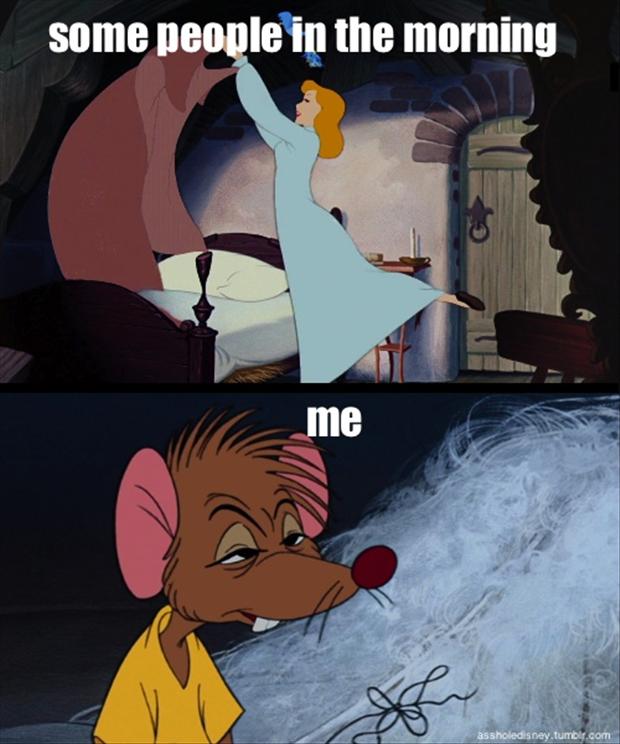Here is a typical end-of-day scene: Someone, or a group of people, is invited to bang the gavel or sound the closing bell at the end of a day of trading, which is 4:00 p.m. New York time. Not sure why they clap, but it would be nice if we all got a nice round of applause at the end of our work days....
***Please tell me you watch the news at least sometimes!!?? http://www.bing.com/videos/search?q=close%20of%20stock%20market%20ring%20bell&FORM=BVLH1#view=detail&mid=D32D4206DE0B9D82E09DD32D4206DE0B9D82E09D
In its most basic form, the Stock Market is a group of people and businesses, buyers and sellers, who are buying parts of businesses and selling them to make money. Here's an example: Let's say you think McDonald's is a good business and is likely to keep making money as long as people want burgers, fries, and McFlurries. So you buy 10 shares of McDonald's stock (you are 'sharing' ownership of it). They cost about $97.00 these days, so you have invested $970 in that company.
Other people share your confidence and buy McDonald's stock, too. You watch it every day, because the price fluctuates (goes up and down) for whatever the reason. After six months, you decide you want to sell it because it has now gone up to $157 a share, so you have made a profit of $60 x 10 shares, or $600. Depending on the situation, your profit may have also been invested in more shares or in other stocks, so your profit might even be more. That is how you make money on the stock market.
- Confused? Stocks and Shares are the same thing.
On the other hand, your stock may drop in value and you can lose money. Your decision is when to buy more and when to sell what you have. Do you wait and see if the price goes higher, or not? Sometimes you may hear "Buy low, sell high." That means buy when the prices are low so you can buy more, and then sell it when the prices get higher, so you make more profit. Some people are good at looking at new businesses and determining that they will grow swiftly, so they invest a lot of money when the stock isn't very expensive, wait, and then make a good profit after a period of time. The usual plan is to buy stock and just let it do whatever it does for several years, before you sell and make the best profit.
Here you see the price of McDonald's stock going from under $40 in 2005, to over $90 in 2011. If you had invested at $40, and kept that stock, your profit would be over 100%. Notice how the price goes up and down many times over the years.
- Every major country has a stock exchange.
- The money being traded worldwide is about $55 trillion.
- 34% of all trading is done by the United States, followed by Japan at 6% and The United Kingdom also at 6%.
- The NYSE is a building
- The NASDAQ is online trading.
- It was originally called the Stock Exchange because the trading was for stock such as livestock or farm products.
Have you heard about the Stock Market Crash of 1929 and the ensuing Great Depression? Read about it here (History Channel): http://www.history.com/topics/1929-stock-market-crash
Why did this affect the whole country? Why were so many people out of work? Most of them (and us, to this day) are not investors in the stock market, so how did that happen? Because it has a 'ripple' effect: If companies go out of business, people lose their jobs. People can't find new jobs, and become poor. Ergo, the Great Depression.
Several reasons, including
- Economic
- Financial-the amount of money people are investing fluctuates
- Disasters-an earthquake could upset many businesses and have a 'ripple' effect throughout a country, as one example.
- Politics - if a country's leaders are perceived to make a country unstable, there may be doubt as to the economy of that country; or if there is unrest in a region, people might not want to invest in companies that do business there.
http://www.bing.com/videos/search?q=stock%20market%20floor&FORM=BVLH1#view=detail&mid=A2F9DA663AA5FAC4BDAAA2F9DA663AA5FAC4BDAA
Why do they sometimes refer to a Bull Market or a Bear Market?
These two terms were originally used because:
A bull attacks by putting its head down and coming at you with its horns 'Up.'
A bear attacks by swiping 'Down' with its paws.
So, prices are 'up' and things are looking 'up' in a Bull Market; prices 'down' in a Bear Market.







